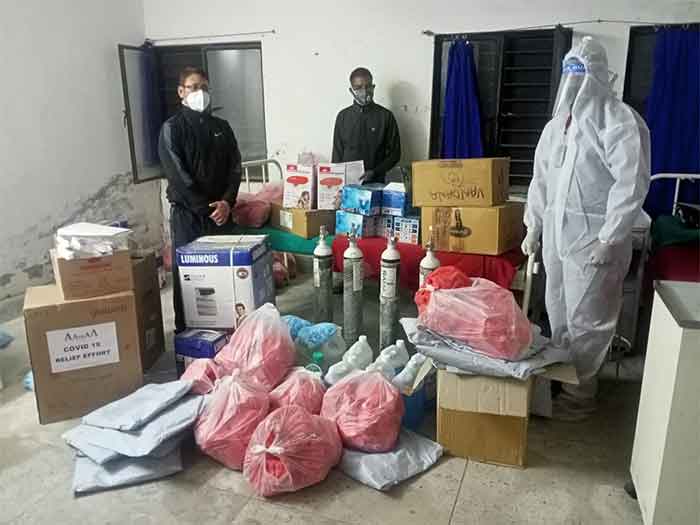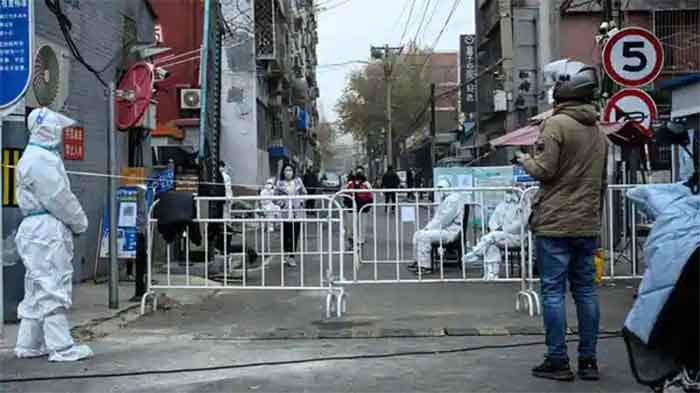
The COVID pandemic has caused unprecedented damage across the globe. Its’ gory journey, still continues to impact our lives and the world around us. Nearly a year into the pandemic, we face a human tragedy, and a public health, humanitarian and development emergency.
With India’s first case of COVID-19 reported in Jan 2020, and the Government announcement of a nationwide lockdown, aimed at stemming the coronavirus spread, caused a considerable and abrupt halt in business, travel, and social activities — and with that, livelihood opportunities of the marginalised communities were severely affected. This attempt to curb the pandemic unfortunately opened the doors to economic and social crises. The lockdown and shut- down of economic activity resulted in a sudden and complete loss of income, especially for low-income groups, and triggered a mass reverse migration of some of the most vulnerable segments of the population: temporary migrant labourers.
This article is to speak of the role of social workers and voluntary organizations. This can be looked at in two different directions.
One relating to the pandemic related areas of work that has become the need of the hour. Two – the usual focus areas of the organization with areas of intervention that have emerged and now become important with the pandemic situation.
It is of common understanding that in any disaster situation, the role of social workers can be rescue, relief, rehabilitation, and also promoting disaster preparedness.
In all of these areas, we have seen voluntary sector responses during the pandemic. Individuals, citizen groups, philanthropists, businesses and nonprofit organisations – all have come forward to support Government efforts to help mitigate this triple crisis. On the front lines, thousands of nonprofit organisations across India have used their existing grassroots networks and know-how to undertake vital work to mitigate the health, economic and social crises in the communities they serve. A snapshot report released by the Centre for Social Impact and Philanthropy (CSIP), Ashoka University, in June 2020 conducted interviews with NPOs and state that “three-fourths of the interviewed NPOs were actively engaged in ongoing relief work, using their embedded presence in communities as a particular strength. This work ranged from last-mile delivery of relief material such as dry ration and sanitation kits, community awareness and sensitisation, setting up health camps and isolation facilities, rescuing stranded labour, provision of direct cash transfers, to offering rehabilitation of the distressed communities.”
The role played by voluntary agencies is highly commendable, but here we will take a different standpoint. In any context, we need to understand the constant interplay of the market, the State and the civil society in a triangular mutually influencing context. True development needs the harmonious balance of these three forces. In a given scenario, if we have the market dominating the State and civil society endangers social welfare as the focus in such a situation can only be profit and imbalanced wealth distribution. In a scenario where the State ignores civil society, its efforts will flounder for lack of manpower and community connectedness. This pandemic is testimony to such a floundering situation. It is strongly believed that for actual social change, it is imperative that the State should work along with the voluntary sector. Development experts believe it is crucial to understand that it will not be possible for the Government alone to holistically address the pandemic — develop, implement and ensure that measures reach the needy, last-mile people. To add to its reach and resources, the Government needs civil society, non-government and community organisations to spearhead its initiatives with their extensive reach and large volunteer-base embedded in the community.
António Guterres, the Secretary-General of the United Nations, has reiterated that civil society and grassroots organisations play a fundamental role in fighting COVID-19 at local levels. NGOs, according to him, bring economic and livelihood opportunities and can adapt responses to the community context.
Also looking forward there is so much still to be done in the coming months – creating more livelihood opportunities for returned migrants, rebuilding the economies of low-income communities and the informal sector, and ultimately, building resilience to deal with disasters and shocks from the community level.
The Government cannot negate the role of voluntary agencies, but here in this pandemic context, there are two situations – one, the non-acquiescence of the Government in recognizing and collaborating with the voluntary sector. The Government has neglected / refused to work together, refuse to acknowledge and build partnerships.
The other standpoint, is a severe funding crunch faced by NGOs across the country, caused by the latest FCRA guidelines, which has caused unnecessary cumbersome procedures, intricate red-tapism that has choked the international funding sources for a majority of the NGOs in India. This has handicapped the sector, from reaching out the way it could, and it should.
It is also pertinent to record here the role played by volunteers – people with no backing in professional social work, no prior connections with the voluntary sector who have come out with meaningful and heroic efforts but the efforts of these individuals have also not been recognized by the State.
In this context, to drive home this argument, we can draw parallels to the Tsunami disaster of 2004. Between 2004 and 2006, the Tamil Nadu Government in true spirit of collaboration, worked along with the voluntary sector. Coordination Committees of Government departments, along with NGOs were formed district wise, and these committees helped the equitable distribution of work amongst all interested NGOs and associations. This was quite evident right from the distribution of relief material up to the building of homes for the victims.
But today, this non-cooperative stand of the Government has also resulted in an increased burden on our healthcare workers. Huge aspects of the pandemic care services, even now the vaccination drives – could have been better streamlined with the voluntary sector, taking forefront. Voluntary Action Network India (VANI), in its recently published ‘Study Report on National Policy on Voluntary Sector’, observes that “In a country like India, the voluntary sector bridges the gap between the Government and the population of the country. It identifies the needs of the community and provides its support and services, even in the most untouched and marginalized areas, where the Government is not able to reach.” But this potential has remained mostly untapped.
The second direction that we will be looking at relates to the usual focus areas of organizations, the voluntary sector, in the “old normal” as we say now, was already overburdened and understaffed. While nonprofit organisations have taken on an active role in responding to the pandemic, these organisations have been forced to roll back their regular programmes and activities due to the nationwide lockdown. There has been a complete disruption in their programmatic activities and there is looming uncertainty around the continuity of these programmes. The work areas of the voluntary sector are still particularly relevant, whether there is a lockdown, or not, community initiatives are still needed. But the pandemic has caused a lot of this work to slow down or sometimes even come to a grinding halt. This has been because of lockdown restrictions, funding crunches, lack of personnel, etc. The handicap here has been also the increased surge of digital connectivity. It has definitely been a very positive way of keeping people connected virtually across borders, and the voluntary sector has innovated creatively with online consultations, virtual community outreach, virtual public meetings, digital protests – but yet the digital divide has had serious implications in the efficacy of reaching out to those who need it the most.
Deep rooted poverty, increased incidences of child sexual abuse, domestic violence, child marriages during this period, increased challenges in the disability sector, amplified challenges for the LGBTQ, increased custodial violence, an infinitely more fragile eco system, the increasing need for mental health services, child welfare services – All of these further exacerbated by the pandemic – urgently require the increased involvement of the voluntary sector. Professional social workers are needed to put in damage control measures, establish systems and frameworks in place and carry out these services in a committed and professional manner.
The UN Secretary General states it succinctly – He says, “Extreme poverty is rising; the threat of famine looms. We face the biggest global recession in eight decades. These inter-generational impacts are not due to COVID-19 alone. They are the result of long-term fragilities, inequalities and injustices that have been exposed by the pandemic. It is time to reset. As we build a strong recovery, we must seize the opportunity for change.”
This is particularly true in India. What we are dealing with today probes back into our inherent inequalities, and the marginalisation of decades. Also the increasingly negative climate that has been created to prevent dissent and restrict expression of contradictions is the reason today we all seem incapable of presenting a dissenting opinion.
The standpoint in conclusion is that we all need to become custodians of democracy, and work as critical observers and monitor Government efforts. Working together, reaching out to those in need, raising voices at injustices, always retaining our fundamental rights to association and freedom of expression.
“….We have miles to go before we sleep!!!”
Dr Anita Christine Tiphagne teaches Sociology at the Department of Social Sciences, Lady Doak College, Madurai
GET COUNTERCURRENTS DAILY NEWSLETTER STRAIGHT TO YOUR INBOX












































